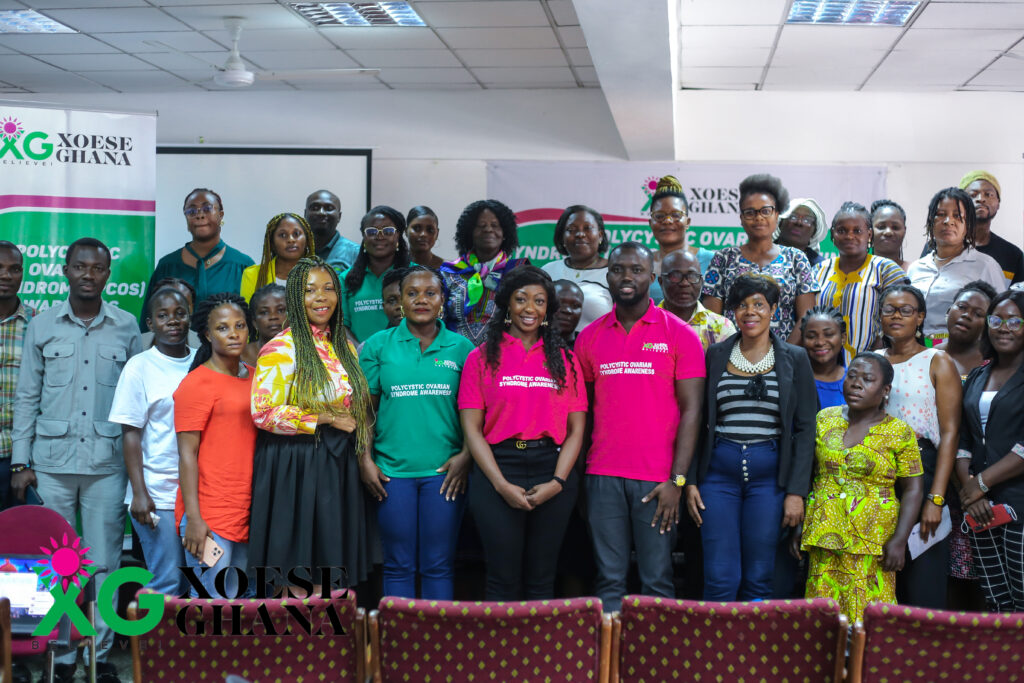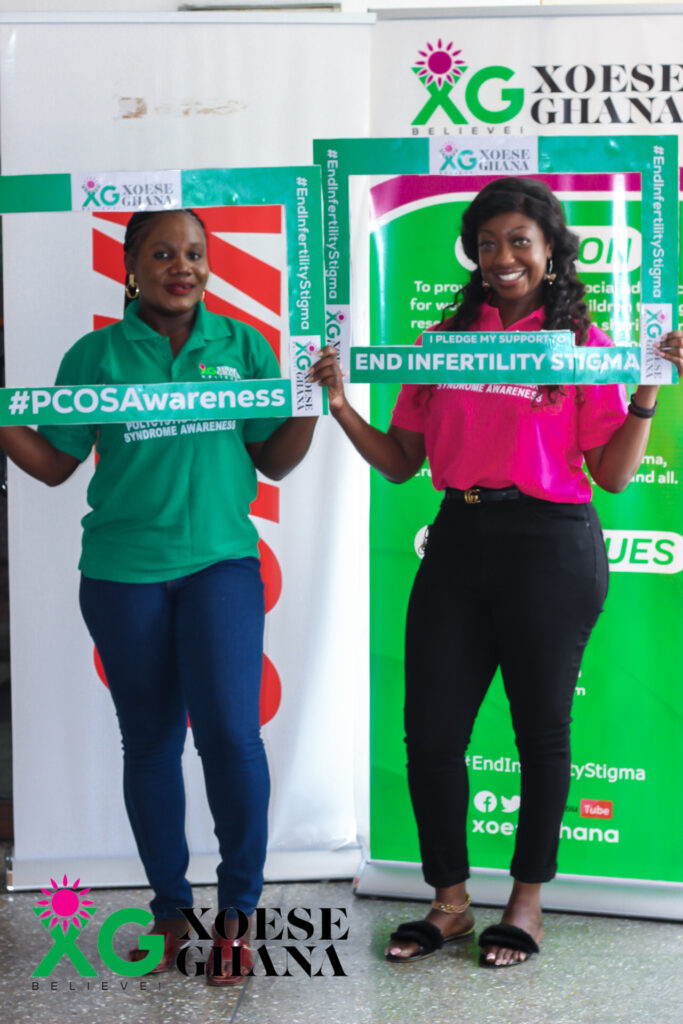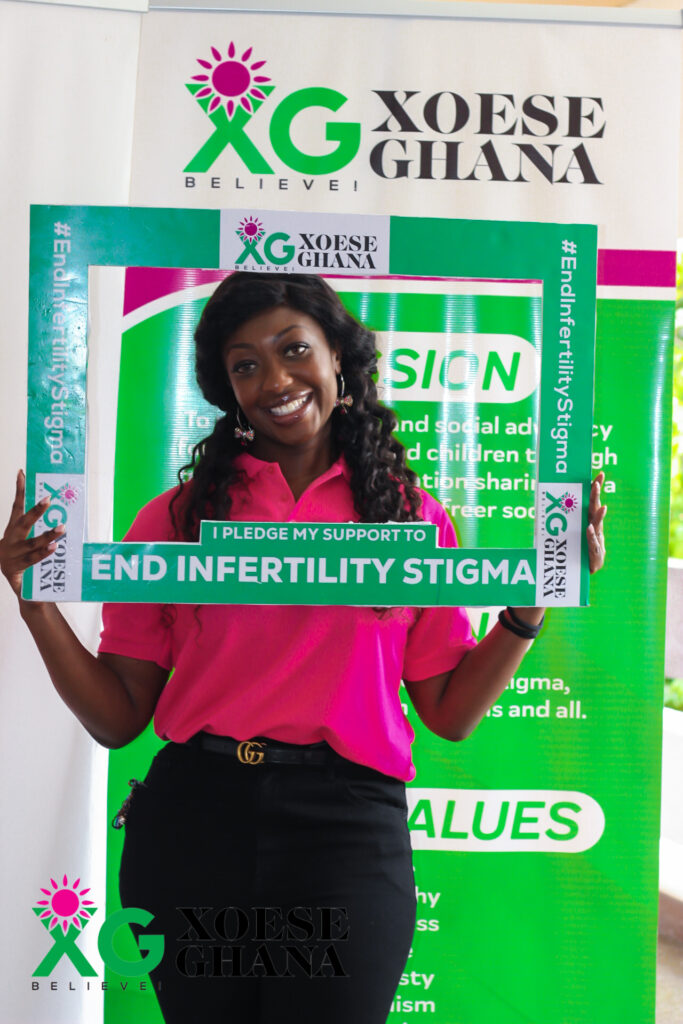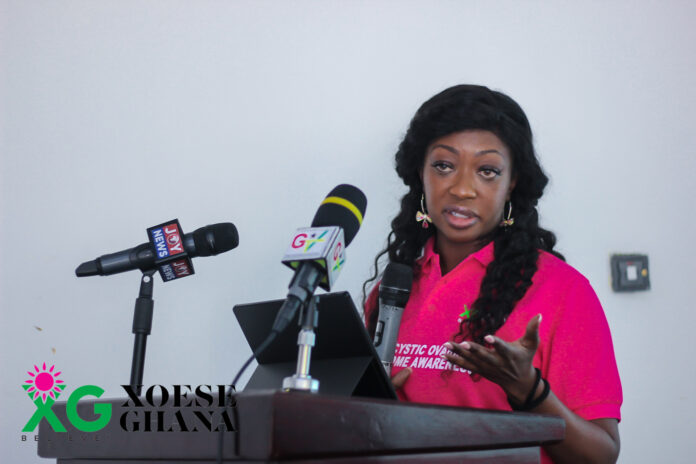By Emelia Naa Ayeley Aryee/Freelance Journalist
The Medical Director of Tema Women’s Hospital, Dr. Yaa Owusu Baah, has educated and sensitised Ghanaians at the 2023 polycystic ovarian syndrome (PCOS) awareness seminar organised by Xoese Ghana.
Xoese Ghana (XG) is an NGO with focus on ending infertility stigma against women and couples. In line with the campaign, XG organised the seminar on the theme: “PCOS – Enlightening toward an infertility stigma-free society”.

The seminar was organised with support from Yango Ghana, the Institute for Liberty and Policy Innovation (ILAPI), IKM Construction, Tema Women’s Hospital, and Missing Children Ghana.
Defining PCOS
The doctor broke down the definition of PCOS for easy understanding and assimilation.
- POLY (MANY)
- C- CYSTIC (FLUID/WATER)
- O- OVARY (WHERE EGGS ARE STORED)
- S- SYNDROME ( Group of symptoms)
This means that the woman’s ovary contains plenty of small eggs (follicles) with fluid. This fluid, in turn, does not make the eggs mature properly while producing a lot of hormones (high male hormones and abnormal female hormones). This situation is manifested with a variety of symptoms.
PCOS symptoms
Some of the symptoms, Dr. Owusu Baah mentioned, are male pattern baldness/thinning of hair, male pattern hair distribution such as growing beards, moustaches, and hairs on the chest and back.
The symptoms of PCOS, she noted, differ from individual to individual, and may change over time and often occur without a clear trigger.
Describing PCOS as “troublesome”, the medical doctor explained that PCOS is the most common or leading cause of infertility in women. And because it causes irregular menses, it makes it difficult to track the fertile period.
She added that PCOS also does not allow eggs to grow to reach the appropriate size to qualify for fertilisation; and though the woman is sometimes able to menstruate, she doesn’t ovulate.
Dr. Owusu Baah stressed that PCOS can affect all areas of an individual’s life, their family, relationships, work and social settings. Especially when it comes to the physical and psychological effects, particularly in relation to obesity, body image and infertility.

Causes and future complications
Some causes of PCOS are genetic (if one’s mother or siblings have it), also lifestyle – eating fatty meals, obesity, and lack of exercise.
She also listed a number of complications that a person with PCOS would be experiencing, and these include hypertension/stroke, diabetes, pregnancy complications – miscarriage, preterm labour, anxiety and depression, sleep disorders, ovarian cancer, and endometrial (womb) cancer.
Tema Women’s Hospital’s strides with PCOS
According to Dr. Yaa Owusu Baah, irrespective of a woman’s age, her facility can assist with infertility cases and make childbirth possible.
“As a facility, we strive to help women – to understand and have a normal cycle, guide their fertility wishes irrespective of age (<60), understand gynaecological conditions (not only PCOS) that affect their daily lives, and assist them to make informed consent on their health, she disclosed.
She stated that collaborating with Xoese Ghana on the 2023 PCOS Awareness Seminar is one of the many platforms her facility uses to provide insight into PCOS and help women.

Infertility stigma
Dr. Owusu Baah criticised infertility stigma, while listing some of the negative impacts it has on it victims, particularly women.
“Some of the women are made to lose confidence and have low self-esteem, they face depression, rejection, and even divorce. Infertility stigma must not be encouraged in our society,” she admonished.
She opined that most Ghanaians have limited knowledge of the causes of infertility, resulting in stigmatisation. These people, she said, do not know that infertility has some unexplained or natural causes had, therefore, attribute all causes to spirits, abortions, or both.
To avoid the stigma, Dr. Owusu Baah called for public education to avoid certain misconceptions about childlessness, while society is sensitised to the effects of the stigma – such as perceiving that victims are cursed and useless.
She also advocated for women to be empowered and assisted financially to start their own businesses. Health workers should also provide education on reproductive health issues for women, she emphasised.
Xoese Ghana Director speaks
Meanwhile, the Director of Xoese Ghana, Emelia Naa Ayeley Aryee, thanked Dr. Yaa for making time to speak with participants in the seminar.
She revealed that the feedback received from people shows that the seminar came at the right time and a lot of them have been well educated on the issues of PCOS.
Ms. Aryee says Xoese Ghana will continue to educate Ghanaians on reproductive health issues in line with its campaign to end infertility stigma against women and couples.













































